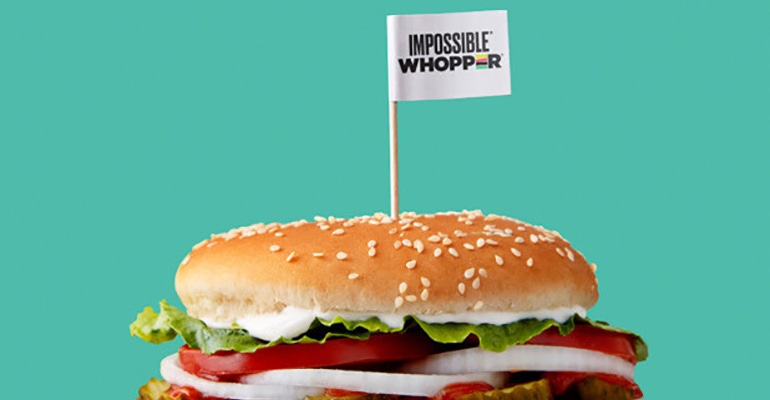5@5: Impossible Whopper boosts Burger King traffic | US burns more plastic than it recycles
Each day at 5 p.m. we collect the five top food and supplement headlines of the day, making it easy for you to catch up on today's most important natural products industry news.
May 28, 2019

Impossible Whopper boosted Burger King traffic by 18%, report says
After rolling out the plant-based Impossible Whopper, locations in Burger King’s test market in St. Louis “outperformed the chain’s national foot traffic average by 18.5% in April.” Impossible Foods raised $300 million in its last funding round and remains focused on introducing its product to consumers via restaurants such as Red Robin and Qdoba. Read more at CNBC …
America burns more of its used plastic than it recycles and it’s turning our planet into a trash fire
A whopping 12% of plastic in the U.S. is burned, while only 9% is recycled. Incinerating plastic releases dioxins, furans, mercury and polychlorinated biphenyls into the air, pollutants which have been linked to “heart disease, headache, nausea, rashes and damage to the kidney, liver and nervous system." Read more at Good …
Nogales tomato industry balks at new import costs
U.S. Department of Commerce officials have taken the side of Floridian tomato growers who argue that growers in Mexico have been dumping Mexican tomatoes to “destroy the domestic tomato industry.” However, the decision to cease importing Mexican tomatoes means an impending rise in tomato prices stateside, and the tomato dispute additionally “threatens 400,000 agricultural jobs and 1 million jobs in logistics and support services” in Mexico. Read more at Tucson News …
From potatoes to coffee, plant breeders are changing crops to adapt to an uncertain climate future
Crop scientists are working overtime to ensure that future populations are fed even as the effects of climate change continue wreaking havoc on once-predictable weather patterns. The hope lies in switching out favored grains, vegetables and fruits for warm-weather adapted varieties with less of a carbon footprint. Read more at New Food Economy …
The race to produce a slower-growing chicken
Cooks Venture is hoping to revolutionize the way chickens are farmed “by combining slower-growing chicken genetics, unrestricted access to lush pasture, and attention to soil and the ecosystem.” What sets this company apart from emerging businesses of the same nature is its ability to control the genetics of its chickens, combining the best attributes of three standard breeds to produce a faster-growing proprietary breed that thrives in the outdoors sans antibiotics. Read more at Civil Eats …
You May Also Like


